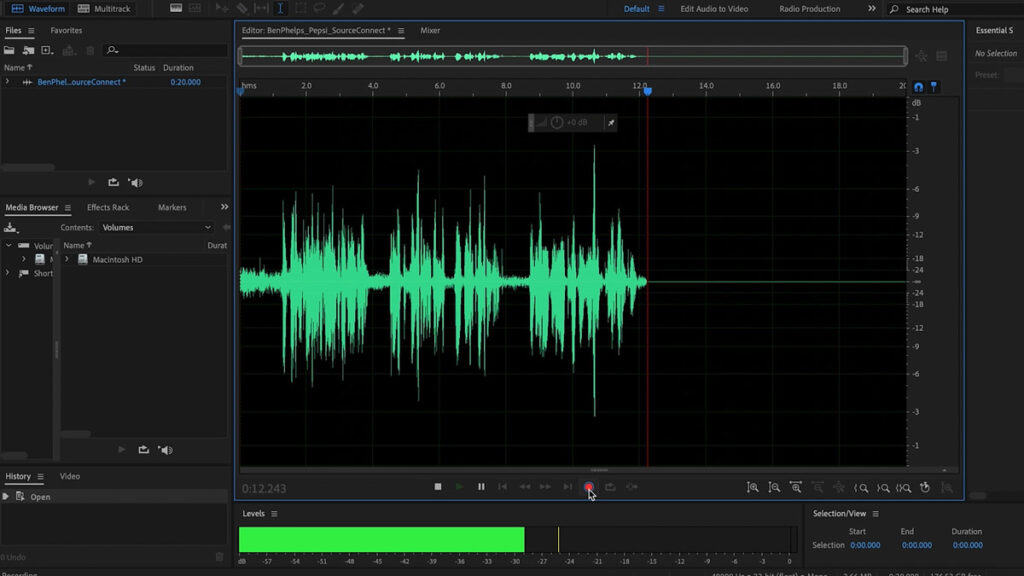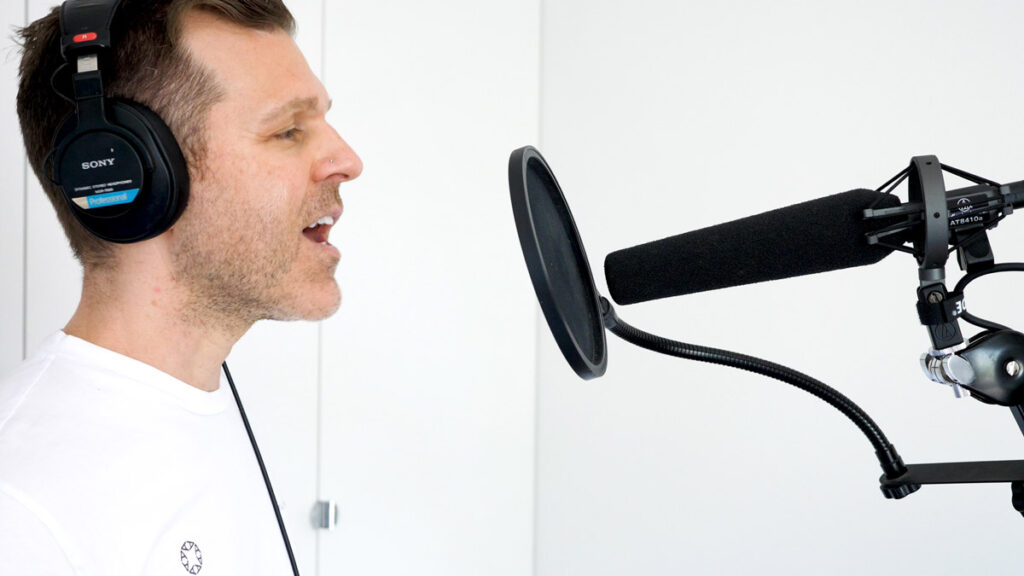Not all voice over jobs are created equal. And for voice actors, it’s not just the script and the paycheck that differ from job to job. There’s another factor that has a massive bearing on the entire process: the client. So what’s it like working with clients on big VO projects?
When I first got started as a voice actor, I assumed the voiceover industry was all Pepsi commercials, Pixar films and the in a world movie trailer guy.
And while that wasn’t totally wrong or anything, it wasn’t even close to all the way right.
Once I finally made the firm decision pursue a serious career in voice acting, it became clear that there was a ton of voice-over work I hadn’t even considered. Sure, there are video games, cartoons and movies – but those audiobooks, explainer videos and radio promos don’t just magically appear.

Most professional voice actors work on a bunch of different projects with vastly different pay rates baked in.
But what is it like working on the big commercial jobs that are going to have a ton of eyeballs on them? The network Verizon and Toyota commercials. The big pharma campaign. And how do those voice over jobs differ from the smaller jobs that make up an overall long term career?
The TLDR is: it’s the best. But it’s far more nuanced than just that.

First Let’s Talk About Clients
Before we dig too far in, we should examine one of the constant factors in voice acting.
You are going to be working for (or with) a client.
- The client is the person, producer or creative agency that hired you to do the voice over job.
- They will likely be directing you in the recording session.
- And who’s gonna be paying you for your kick-ass voice acting services? Yep, the client.
- In fact, aside from issues like rate of pay, time in the studio (or in your home studio), your potential clients are one of the biggest factors in the VO calculus.
Obviously the client is calling the shots – and having a good relationship with your clients is paramount. Doesn’t matter whether it’s your first gig, or you’re a seasoned veteran.
But there are good clients and not-so-good clients.

What Makes a Good Client?
A good client:
- Knows what they want, and has the communication skills to convey exactly what they’re hoping for from your performance. They also can effectively direct voice actors in sessions to achieve their overall goals.
- Has a well written script. The finished copy is professionally written – and has passed their marketing and legal teams prior to the recording session.
- Is relaxed and respectful in email communication – and in the session.
- Doesn’t waste your time.
- Is paying professional rates commensurate with the scope of the project and intended usage.
- Expects to pay for additional time or sessions. For example, they understand that changes to the script after the initial recording session will incur an additional session fee.
- Pays invoices on time.
Basically a good client is honorable, professional and easy to work with. And when good clients become repeat clients… that’s the ABSOLUTE BEST.
In my experience, most clients are ‘good’ clients.

What Makes a Bad Client?
A bad client:
- Is disorganized and last minute. They may be careless with your time. For example: booking sessions and then rescheduling last minute.
- May have a tenuous understanding and be confused about their own project.
- Communicates their initial idea clumsily to the voice actor – and gives feedback and direction in sessions that isn’t effective.
- Has a poorly written script. Or asks for multiple ‘callback’ auditions from you while they refine their script.
- Tries to get additional voice over sessions for free when they make script revisions.
- Is paying you unfairly, is intentionally vague about usage periods – or runs the spot for additional usage cycles outside of the originally contracted period without further compensation.
- Might be pushy or predatory, trying to sneak things like ‘in perpetuity’ usage into broadcast contracts with less experienced beginner voice actors who might not know any better.
- Doesn’t pay invoices in a timely manner.
I know there are bad clients out there. Luckily I’ve run into very few of them over the years. In fact – really only one. And even that turned out mostly fine in the end.
However, while I’ve heard some horror stories from people that do the majority of their VO work on the freelancer sites, you just won’t find clients like that working on ‘big’ jobs in the voiceover industry.

What Constitutes BIG Voice Over Jobs?
Now might be a good time to lessen the broadness of the term ‘big’ and hone in on what is it means in terms of voice over work.
- If it’s a commercial project, the brand is probably very well known. Think Nike, Ford, Coca Cola, Apple, GEICO, etc.
- Also, the medium and usage counts. Think Super Bowl caliber TV ads that will be played regularly for a long time – not a one-off spot running on Tik Tok, or an ad used exclusively as pre-roll on YouTube videos.
Keep in mind that these are broad generalizations linked solely to the upper end of commercial VO. But you get the idea, right?
How Much Do Big Voice Over Jobs Pay?
Now, this will be a little different for everyone. Each job will have multiple factors built in that determine actual rates. But it’s fair to say that the proceeds from a big VO job can pay some bills.
- For example, a single national network commercial at SAG scale for a large brand with multiple 13-week ad cycles can net a voice actor a low to mid five figure payday.
- And a campaign (a term that can encompass multiple TV ads – or multiple spots run on TV, radio, new media, etc.) can run into six figures. An extremely small portion of constantly running national campaigns can reach the seven figure mark.
All that bank for recording audio files with your microphone in your home studio. Not bad, right?
But it’s important to remember that not all (or even most) voice over jobs are ‘big’ jobs
In fact most professional full-time voice-over artists work on a steadier combination of smaller to midsize projects that – coupled with more sporadic ‘big’ jobs – can add up to a very decent overall income.
Don’t get it twisted (like I did at the beginning of my own career).
- There is a LOT of work out there. But the majority of those amazing and fun VO work opportunities will have far more humble paychecks attached.
- And just because it’s a big brand, that doesn’t mean the job itself is a big one. Plenty of large brands run spots with smaller budgets, limited usage and a lower buyout for the voice actor.
If you’re interested in how much voice actors make, along with financial breakdowns from actual voice over jobs, check out this post.
And, remember, when you’re just starting out as a voice-over talent, almost any paying job goes in the win column. Learn how you can turn a relatively low paying VO job at the start of your career into something that has tangible value down the road in this comprehensive step-by-step course for beginner voice actors.
Start Your Career as a Voice Actor
Voice Over: The Ultimate Beginner’s Guide
What It’s Like Working With the Clients on Big Voice Over Jobs
The larger the project, paycheck and profile of the brand – the easier the job tends to be.

Maybe not what you’d expect, right?
- Big clients working on large projects are almost always the best in their field. From creative directors to line producers to production assistants, everyone knows what they’re doing. And they’re really good at it.
- They understand the scope of their specific project, are well prepared – and can communicate their expectations effectively with the voice actor.
- The clients want to work with YOU. Remember, they chose to work with you based on your amazing audition takes or demo reel.
- And they’re not short on resources. They’re paying very well, treat you like a professional – and, in turn, expect to receive a quality performance from you.
From my very first big voice acting job to the present day, the clients on big jobs have all been extremely professional, and a joy to work with.
And the jobs themselves tend to be quick, efficiently run and super fun.
Small(er) voice over jobs can have GREAT clients (and that’s usually the case) – but it’s more variable.
So what about you? Have you had an outstanding experience with a great client? How about a horror show with a bad one? How did you handle it? Tell me about it in the comments section!
And check out these other things beginner voice actors should know about:
- The One Thing Successful Voice Over Artists All Have in Common
- 9 Audition Tips for Voice Actors
- VO Jargon: The Terms Voice Actors Need to Know
Plus, gear reviews for voice actors:
- Focusrite Scarlett 2i2 Audio Interface Review
- Sennheiser MKH 416 Microphone Review
- Sony MDR 7506 Headphones Review
Curious about how to start your voice acting career? Want to learn more about voice acting and the things beginners should know about the voice over industry? It’s more than just having a great voice. Bring your natural talent and check out this voice over training course for beginners!



Leave a Reply